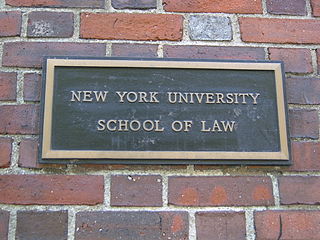Because of this.…
Author: Eoin
New year, new defamation regime
 Alison Healy, writing in today’s Irish Times, quotes a spokesperson for the Department of Justice as saying that
Alison Healy, writing in today’s Irish Times, quotes a spokesperson for the Department of Justice as saying that
… no part of the [Defamation] Bill had come into force yet but the [Defamation] Act was expected to be commenced in January.
Healy continues that, whilst in July, the Department had said that the Act was expected to commence in October, the spokesperson confirmed that it is now expected to commence in January 2010. For earlier comments to the same effect, see Rossa McMahon (see also here).
Unfortunately, the headline is the far more sensationalist
Blasphemy law unlikely to come into force this year
Yes, the Defamation Act, 2009 (pdf) does indeed have provisions relating to blasphemy; yes, I’ve written quite a bit about those provisions on this blog; (and yes, international reaction (pdf) continues (pdf) to be negative); but there is far more to the Act than that. If you want to find out more, you could do worse than to attend this event.…
Is a low mark a breach of contract?
 For a low grade to be a breach of contract, there must first be a contract, and courts are slow to find the existence of such a contract, in part because they are reluctant to get involved in grading disputes. Thus, for example, in Keefe v New York Law School (17 November 2009) (hat tips: ContractsProf Blog | Adjunct Law Prof Blog; update: 25 Misc 3d 1228(A) (2009) aff’d 71 AD3d 569 (2010)) York J held that general statements of policy in a school’s bulletins, circulars, catalogues, handbooks and website are not sufficient to create a contract between a student and law school; rather, only specific promises that are material to the student’s relationship with the school can establish the existence of a contract. (Compare and contrast the decision of Murphy J in Tansey v College of Occupational Therapists Ltd [1986] IEHC 2, [1995] 2 ILRM 601 (27 August 1986)). York J provided an important policy justification for this approach:
For a low grade to be a breach of contract, there must first be a contract, and courts are slow to find the existence of such a contract, in part because they are reluctant to get involved in grading disputes. Thus, for example, in Keefe v New York Law School (17 November 2009) (hat tips: ContractsProf Blog | Adjunct Law Prof Blog; update: 25 Misc 3d 1228(A) (2009) aff’d 71 AD3d 569 (2010)) York J held that general statements of policy in a school’s bulletins, circulars, catalogues, handbooks and website are not sufficient to create a contract between a student and law school; rather, only specific promises that are material to the student’s relationship with the school can establish the existence of a contract. (Compare and contrast the decision of Murphy J in Tansey v College of Occupational Therapists Ltd [1986] IEHC 2, [1995] 2 ILRM 601 (27 August 1986)). York J provided an important policy justification for this approach:
…As a general rule, judicial review of grading disputes would inappropriately involve the courts in the very core of academic and educational decision making. Moreover, to so involve the courts in assessing the propriety of particular grades would promote litigation by countless unsuccessful students and thus undermine the credibility of the academic determinations of educational institutions.
Film classification and press regulation
Two pieces in yesterday’s Irish Times caught my eye. The first relates to the retirement of the man who has probably the most recognised signature in Ireland. The second relates to the responsibility of those who write other words that many of us read.
 For the past six years, every movie released in Ireland has been classified by his office with a certificate signed by him. He is John Kelleher, and he has just retired as Director of the Irish Film Classification Office:
For the past six years, every movie released in Ireland has been classified by his office with a certificate signed by him. He is John Kelleher, and he has just retired as Director of the Irish Film Classification Office:
…‘I don’t believe in censoring for adults’
He’s seen nearly 2,000 films personally and supervised the watching of 55,000 others, yet the film censor John Kelleher only banned one film. Mr Kelleher, the director of the Irish Film Classification Office (Ifco), stepped down yesterday just two days short of his 65th birthday. …
He says his biggest achievement in office was to be involved in last year’s Civil Law (Miscellaneous Provisions) Act, which changed the name from the Irish Film Censor’s Office to the [the Irish Film Classification Office] Ifco. The Act changed his job title to reflect his primary role in classifying rather than censoring films. The phrase “likely to cause harm to children” was introduced into the legislation for the first time.
Conference: Recent developments in Irish Defamation Law
 Next week, the School of Law, Trinity College Dublin, will host a conference on
Next week, the School of Law, Trinity College Dublin, will host a conference on
Recent Developments in Irish Defamation Law – Including the Defamation Act, 2009
It will be on from 9:30am to 1:15pm on Saturday, 28 November 2009, in the Davis Theatre, Arts Building, Trinity College Dublin.
As regular readers of this blog will know, Irish Defamation law has undergone a number of radical changes in the last twelve months including, most notably, the changes which are to be wrought by the newly enacted Defamation Act, 2009 (pdf). These changes will significantly influence the way in which defamation cases are to be managed and may, potentially, represent a shift in the traditional balance between plaintiffs and defendants in defamation cases. The conference will consider the nature of such changes. Here’s the provisional programme:
09:00 Registration
09:30 Paul O’Higgins, SC The Defamation Act from the Plaintiff’s Perspective
09:55 Eoin McCullough, SC The Defamation Act from the Defendant’s
Perspective
10:20 Paula Mullooly The Defamation Act from the Solicitor’s Perspective
10:45 Questions and Discussion
11:00 Tea/Coffee Break
11:15 Brendan Kirwan BL Injunctive Relief and Remedies
11:40 Ray Ryan BL Key Points of Practice and Procedure in Defamation
12:05 Dr Eoin Carolan BL Alternative Causes of Action
12:30 Dr Eoin O’Dell The Defamation Act: The Constitutional Dimension
12:55 Questions and Discussion
13:15 Conference Ends
14:30 Ireland v South Africa (Croke Park)
For more information or to make a reservation, please phone ((01) 896 2367), fax ((01) 677 0449), email, or visit the website.…
The Regulation and Perception of Political Advertising
- Eisenhower for President via Youtube
As a companion piece to the Reagan advertisement in my last post, Eisenhower for President (left), built around the famous slogan “I like Ike”, is regarded as the first paid political television advertisement. I wonder what the first Irish one will be, and when?
I promised in an earlier post that I would look again at Kevin Rafter’s recent report on Political Advertising: The Regulatory Position & the Public View (here), the research for which was funded under the Broadcasting Authority of Ireland’s Media Research Scheme.
In Ireland, political advertising is banned in the broadcast media, but there are no similar restrictions upon the non-broadcast media, such the press, billboards, and so on, though a system of party political broadcasts during election and referendum campaigns is intended to mitigate the harshness of the broadcast advertising ban.
This distinction between broadcast and print media is often justified by the particular power of the broadcast medium. However, a local ban takes little account of developments in broadcasting (cable, satellite and digital channels) and telecommunications (the internet, mobile devices), and radio and television have nothing like the reach and impact that they had even a generation ago.…
Political advertising in the morning
- Morning in America via Youtube
Morning in America (left) is the common name of a political adverisment used by Ronald Reagan in the 1984 US presidential election. Officially entitled Prouder, Stronger, Better, the optimistic tone of the advertisment made it one of the most effective political campaign advertisments ever made (and went hand in hand with another famous political advertisment critical of his opponent). It is an advertisment that comes to mind whenever I think about political advertising.
Following on from yesterday’s post, here are three quick updates on political advertising.
First, Kevin Rafter’s report for the BAI (here) has been picked up by the The Irish Film & Television Network. Second, there is a very good letter in today’s Irish Times on the issue:
…Madam, – A proposal to alter the restrictions on political and religious advertising is long overdue (News, November 16th). The decision, some weeks ago, by RTÉ to ban a fundraising advertisement by the Shell to Sea campaign is an indication of the folly which underlies this ban. Defining what comes under the scope of a political campaign is a delicate but, ultimately, subjective judgement.
An oil company or car manufacturer advertising a “green” approach to business is a highly political act.
Massaging the political advertising ban
 Section 41(3) of the new Broadcasting Act, 2009 (pdf) provides:
Section 41(3) of the new Broadcasting Act, 2009 (pdf) provides:
A broadcaster shall not broadcast an advertisement which is directed towards a political end or which has any relation to an industrial dispute.
This sub-section (in conjunction with section 41(4), which contains a ban on religious advertising) re–enacts long–standing bans on political (and religious) advertising; though such a ban is unlikely to survive challenge in the European Court of Human Rights.
Dr Kevin Rafter, Head of the Department of Film and Media, in the School of Creative Arts, at the Dun Laoghaire Institute of Art, Design and Technology has just written a fascinating report on Political Advertising: The regulatory Position and the Public View (here) for the Broadcasting Authority of Ireland (BAI). I’m glad to see this for at least two reasons.
First, it means that the BAI has hit the ground running. In October, the Minister announced five members of the Authority; according to section 13(7) of the Act, the quorum for meetings of the authority is five, so it has been operational since these five members were appointed by the Minister. However, the full membership is nine, and the other four members are being appointed by the Joint Oireachtas Committee on Communications, Energy and Natural Resources.…
